
It happened so fast, though it seems like ages ago.
Monday, March 9, rumors emerge that perhaps COVID-19 might force some closures in our society.
Tuesday, March 10, rumors turn to reality as things start shutting down. In response, I write a communication to our congregation that, in accordance with our long-standing policy, we would not be canceling church services.
Wednesday morning, March 11, Governor Beshear, in what has now proven to be a bold act of foresight, requests that churches not gather for worship. Now what those who do not share the Christian worldview need to understand is that nothing is more sacred to us than gathering for worship. Historically speaking (and still today in many parts of the world), persecuted Christians choose imprisonment and even death, before they would ever forsake assembling together to worship. So, despite my sincere desire to honor our Governor, I viewed this as one request (at the time it was not yet a mandate from Beshear) we simply could not honor, and I wrote a second communication to our church explaining why.
Wednesday afternoon, March 11, my church communication unintentionally goes viral, and ends up in the New York Times, which I don’t fault them for in the least. It was my communication. If I didn’t want it read, I shouldn’t have written it. But all of a sudden, I find myself in the midst of a fierce cultural divide. On one side, some Christians were weaponizing my words as fuel for civil disobedience. On the other side, there were some demonizing my words as fuel for internet outrage.
Thursday, March 12, we announced that we would, in fact, cancel our in-person church services.
In the span of 24 hours, I went from being the public voice advocating for church gatherings to not only canceling our church gathering but urging others to do likewise. Another victim of cancel culture, one might suppose. Not at all. It had nothing to do with the criticism I was receiving (my favorite was a piece written on a prominent site entitled “This is Robert. Don’t be Robert.”), nor the social media vitriol (my favorite was “I hope you burn in any hell that will have you for this egocentric Russian roulette”). Instead I did the one thing you’re not supposed to do in our polarized world: I changed my mind.
I would like to share the details of my 24-hour journey that convinced me that not only should Christians not be gathering for in-person worship, but the Christian duty to love our neighbor in this hour is fulfilled in avoiding our neighbors in this hour. I know much of the KSR audience are church-going people, and I suppose I’m speaking to you, in particular. But if you are not a person of faith, I hope you will still appreciate the ethical argument and join me in this conviction.
What happened?
First, I consulted with a member of our church who is an infectious disease expert, Dr. Charles Kennedy. What Charlie helped me to see is that the real threat is the asymptomatic population unknowingly spreading the virus. I was working from the naïve assumption that if those showing symptoms along with the most vulnerable in our congregation simply stayed home from church, then gathering shouldn’t be a problem. But what Charlie helped me see is that asymptomatic carriers could spread the virus throughout an entire gathering. I knew it would certainly be a low attendance Sunday for our church, but even a low attendance for us would still be between 500-600 people. And so I immediately felt the weight of our Sunday service potentially becoming the epicenter of a viral spread thoughout the Bluegrass that I love.
Next, I turned to another expert, this one from the 16
th Century. Many have heard of Martin Luther and his role in the Protestant Reformation. But what you may not know is that shortly after his theses gave birth to the reformation, there was an outbreak of the black plague in his hometown of Wittenberg, Germany. The public was panicked and turned to Luther for what to do. In response, Luther wrote a public communication entitled, “Whether One May Flee a Deadly Plague.”
There is one quote, in particular, that is compelling and making the rounds on social media. Luther says,
“Use medicine; take potions (apparently even Luther was into essential oils); fumigate house, yard, and street; shun persons and places wherever your neighbor does not need your presence or has recovered, and act like a man who wants to help put out the burning city. What else is the epidemic but a fire which instead of consuming wood and straw devours life and body? You ought to think this way: “I shall ask God mercifully to protect us. Then I shall fumigate, help purify the air, administer medicine, and take it. I shall avoid places and persons where my presence is not needed in order not to become contaminated and thus perchance infect and pollute others, and so cause their death as a result of my negligence. If God should wish to take me, he will surely find me and I have done what he has expected of me and so I am not responsible for either my own death or the death of others.”
Long quote short, Luther is arguing for good hygiene and social distancing. Exactly what we’re being asked to do right now. But it’s the way that quote ends that I think has Christians struggling right now. The quote ends with this
“If my neighbor needs me, however, I shall not avoid place or person but will go freely…” This represents the Christian instinct to love at whatever cost. If my neighbor needs me, then forget about social distancing, I’m going to help. That sentiment is right and noble, and it’s a unique mark of Christians throughout our history. For example, Christians were the ones who ran toward, not away from, the leprous who had been cast off by society. So, shouldn’t that be our response now in this hour of desperation? Yes...with a key qualifier. Yes, maintain your fervent love of neighbor but consider well what love looks like in a pandemic. You see, Christians have always been known as those who cared for the sick who could find no care. But that’s not the reality of this moment.
What I found most compelling about Luther’s writings is a moment where he prophetically applies Biblical wisdom to our current situation,
“It would be well, where there is such an efficient government in cities and states, to maintain municipal homes and hospitals staffed with people to take care of the sick so that patients from private homes can be sent there…hospices, hospitals, and infirmaries so that it should not be necessary for every citizen to maintain a hospital in his own home. That would indeed be a fine, commendable, and Christian arrangement to which everyone should offer generous help and contributions. Where there are no such institutions — and they exist in only a few places — we must give hospital care and be nurses for one another.”
Luther is imagining a world of robust medical care, hospitals fully staffed with people whose job was to care for the sick. But alas, Luther says, that’s not our reality so Christians must turn their homes into hospitals and be nurses for one another. But what Luther could only dream of has become the reality we now enjoy, which means we should heed his advice when he says that in such a scenario,
“Everyone should offer generous help and contributions (to the medical community).” Simply put, the Christian duty to love their neighbor is to fully support those who can actually help their neighbor.
So then, how can we help those who can actually help? They’re telling us ad nauseam. Social distancing, social distancing, social distancing. That’s it. Right now, our moral imperative is to do everything in our power to flatten the curve and make it easier on the professionals. That’s what it means to love your neighbor in a 21
st century pandemic.
Even at the cost of in-person worship? Yes, even worship. Again, for those on the outside looking in on pastors and churches agonizing over the decision to cancel services, you have to understand that for us and our deeply held conviction, this is like a death. What may seem to you as just another gathering is for us the most sacred moment of the week. And for that final decision, I turned to one final expert, the expert I call Lord.
Here is where I may lose some readers, and I understand. But for Christians struggling with whether to abide by the Federal recommendations and KY’s imposed regulation against worship gatherings, let me point you to Jesus himself. There is a poignant moment in Jesus’ ministry where he made the choice to break with Sabbath customs. According to strict traditions surrounding the Sabbath at that time, it was unlawful to do any work, including even helping someone. Well Jesus breaks what was customary in order to heal a man. The religious were indignant with him for not keeping with tradition, and this was his response, “Which is lawful on the Sabbath: to do good or to do evil, to save life or to kill?"
His point is that it is right to break with traditions and customs break in order to do good and save life. And that was the Biblical connection that I had never considered. I could never imagine a scenario where gathering together for worship in our customary fashion wouldn’t be good and life giving. But such is the unconventional time that is upon us. Make no mistake, gathering together right now could very well lead to death of our neighbors. Or to state it positively, by not gathering, we are choosing to save the lives of our neighbors.
Now the good news is that we live in a day that enables us to worship together online, albeit imperfectly and deficiently. It is no doubt breaking with customs. But according to Jesus, to break with custom to save life honors the very meaning of the Sabbath.
And so in the span of 24 hours, I went from being quoted in the NYT as a pastor who would never shut his doors, to asking our church leadership to do just that. Alas, God’s devotion to my humility is unrelenting.
Now, a word to my fellow Christians. If this is serious enough to cancel sacred services, then surely it is serious enough to cancel your plans. Christians have historically led the way in loving the most vulnerable, and this hour must be no different. Only in this hour, our love takes an unconventional form. It means that Christians must lead the way in quarantining efforts, yes even those Christians who are not considered high risk for COVID-19.
There is a reason why Jesus said, “Love your neighbor
as yourself.” It’s the “as yourself” that should echo in this hour. What does love look like right now? One simple paradigm shift: treat this pandemic like
you are the most vulnerable. That would change things, wouldn’t it? Which is precisely the wisdom of the command. So, the Christian duty to neighbor remains uncompromised, only in this unconventional season, to love our neighbor is to avoid our neighbor.
Robert Cunningham is the Pastor of Preaching and Vision at Tates Creek Presbyterian Church, and the host of Every Square Inch podcast. You can reach out to him with comments and questions on twitter @tcpcrobert or [email protected]
 It happened so fast, though it seems like ages ago.
Monday, March 9, rumors emerge that perhaps COVID-19 might force some closures in our society.
Tuesday, March 10, rumors turn to reality as things start shutting down. In response, I write a communication to our congregation that, in accordance with our long-standing policy, we would not be canceling church services.
Wednesday morning, March 11, Governor Beshear, in what has now proven to be a bold act of foresight, requests that churches not gather for worship. Now what those who do not share the Christian worldview need to understand is that nothing is more sacred to us than gathering for worship. Historically speaking (and still today in many parts of the world), persecuted Christians choose imprisonment and even death, before they would ever forsake assembling together to worship. So, despite my sincere desire to honor our Governor, I viewed this as one request (at the time it was not yet a mandate from Beshear) we simply could not honor, and I wrote a second communication to our church explaining why.
Wednesday afternoon, March 11, my church communication unintentionally goes viral, and ends up in the New York Times, which I don’t fault them for in the least. It was my communication. If I didn’t want it read, I shouldn’t have written it. But all of a sudden, I find myself in the midst of a fierce cultural divide. On one side, some Christians were weaponizing my words as fuel for civil disobedience. On the other side, there were some demonizing my words as fuel for internet outrage.
Thursday, March 12, we announced that we would, in fact, cancel our in-person church services.
In the span of 24 hours, I went from being the public voice advocating for church gatherings to not only canceling our church gathering but urging others to do likewise. Another victim of cancel culture, one might suppose. Not at all. It had nothing to do with the criticism I was receiving (my favorite was a piece written on a prominent site entitled “This is Robert. Don’t be Robert.”), nor the social media vitriol (my favorite was “I hope you burn in any hell that will have you for this egocentric Russian roulette”). Instead I did the one thing you’re not supposed to do in our polarized world: I changed my mind.
I would like to share the details of my 24-hour journey that convinced me that not only should Christians not be gathering for in-person worship, but the Christian duty to love our neighbor in this hour is fulfilled in avoiding our neighbors in this hour. I know much of the KSR audience are church-going people, and I suppose I’m speaking to you, in particular. But if you are not a person of faith, I hope you will still appreciate the ethical argument and join me in this conviction.
What happened?
First, I consulted with a member of our church who is an infectious disease expert, Dr. Charles Kennedy. What Charlie helped me to see is that the real threat is the asymptomatic population unknowingly spreading the virus. I was working from the naïve assumption that if those showing symptoms along with the most vulnerable in our congregation simply stayed home from church, then gathering shouldn’t be a problem. But what Charlie helped me see is that asymptomatic carriers could spread the virus throughout an entire gathering. I knew it would certainly be a low attendance Sunday for our church, but even a low attendance for us would still be between 500-600 people. And so I immediately felt the weight of our Sunday service potentially becoming the epicenter of a viral spread thoughout the Bluegrass that I love.
Next, I turned to another expert, this one from the 16th Century. Many have heard of Martin Luther and his role in the Protestant Reformation. But what you may not know is that shortly after his theses gave birth to the reformation, there was an outbreak of the black plague in his hometown of Wittenberg, Germany. The public was panicked and turned to Luther for what to do. In response, Luther wrote a public communication entitled, “Whether One May Flee a Deadly Plague.”
There is one quote, in particular, that is compelling and making the rounds on social media. Luther says, “Use medicine; take potions (apparently even Luther was into essential oils); fumigate house, yard, and street; shun persons and places wherever your neighbor does not need your presence or has recovered, and act like a man who wants to help put out the burning city. What else is the epidemic but a fire which instead of consuming wood and straw devours life and body? You ought to think this way: “I shall ask God mercifully to protect us. Then I shall fumigate, help purify the air, administer medicine, and take it. I shall avoid places and persons where my presence is not needed in order not to become contaminated and thus perchance infect and pollute others, and so cause their death as a result of my negligence. If God should wish to take me, he will surely find me and I have done what he has expected of me and so I am not responsible for either my own death or the death of others.”
Long quote short, Luther is arguing for good hygiene and social distancing. Exactly what we’re being asked to do right now. But it’s the way that quote ends that I think has Christians struggling right now. The quote ends with this “If my neighbor needs me, however, I shall not avoid place or person but will go freely…” This represents the Christian instinct to love at whatever cost. If my neighbor needs me, then forget about social distancing, I’m going to help. That sentiment is right and noble, and it’s a unique mark of Christians throughout our history. For example, Christians were the ones who ran toward, not away from, the leprous who had been cast off by society. So, shouldn’t that be our response now in this hour of desperation? Yes...with a key qualifier. Yes, maintain your fervent love of neighbor but consider well what love looks like in a pandemic. You see, Christians have always been known as those who cared for the sick who could find no care. But that’s not the reality of this moment.
What I found most compelling about Luther’s writings is a moment where he prophetically applies Biblical wisdom to our current situation, “It would be well, where there is such an efficient government in cities and states, to maintain municipal homes and hospitals staffed with people to take care of the sick so that patients from private homes can be sent there…hospices, hospitals, and infirmaries so that it should not be necessary for every citizen to maintain a hospital in his own home. That would indeed be a fine, commendable, and Christian arrangement to which everyone should offer generous help and contributions. Where there are no such institutions — and they exist in only a few places — we must give hospital care and be nurses for one another.”
Luther is imagining a world of robust medical care, hospitals fully staffed with people whose job was to care for the sick. But alas, Luther says, that’s not our reality so Christians must turn their homes into hospitals and be nurses for one another. But what Luther could only dream of has become the reality we now enjoy, which means we should heed his advice when he says that in such a scenario, “Everyone should offer generous help and contributions (to the medical community).” Simply put, the Christian duty to love their neighbor is to fully support those who can actually help their neighbor.
So then, how can we help those who can actually help? They’re telling us ad nauseam. Social distancing, social distancing, social distancing. That’s it. Right now, our moral imperative is to do everything in our power to flatten the curve and make it easier on the professionals. That’s what it means to love your neighbor in a 21st century pandemic.
Even at the cost of in-person worship? Yes, even worship. Again, for those on the outside looking in on pastors and churches agonizing over the decision to cancel services, you have to understand that for us and our deeply held conviction, this is like a death. What may seem to you as just another gathering is for us the most sacred moment of the week. And for that final decision, I turned to one final expert, the expert I call Lord.
Here is where I may lose some readers, and I understand. But for Christians struggling with whether to abide by the Federal recommendations and KY’s imposed regulation against worship gatherings, let me point you to Jesus himself. There is a poignant moment in Jesus’ ministry where he made the choice to break with Sabbath customs. According to strict traditions surrounding the Sabbath at that time, it was unlawful to do any work, including even helping someone. Well Jesus breaks what was customary in order to heal a man. The religious were indignant with him for not keeping with tradition, and this was his response, “Which is lawful on the Sabbath: to do good or to do evil, to save life or to kill?"
His point is that it is right to break with traditions and customs break in order to do good and save life. And that was the Biblical connection that I had never considered. I could never imagine a scenario where gathering together for worship in our customary fashion wouldn’t be good and life giving. But such is the unconventional time that is upon us. Make no mistake, gathering together right now could very well lead to death of our neighbors. Or to state it positively, by not gathering, we are choosing to save the lives of our neighbors.
Now the good news is that we live in a day that enables us to worship together online, albeit imperfectly and deficiently. It is no doubt breaking with customs. But according to Jesus, to break with custom to save life honors the very meaning of the Sabbath.
And so in the span of 24 hours, I went from being quoted in the NYT as a pastor who would never shut his doors, to asking our church leadership to do just that. Alas, God’s devotion to my humility is unrelenting.
Now, a word to my fellow Christians. If this is serious enough to cancel sacred services, then surely it is serious enough to cancel your plans. Christians have historically led the way in loving the most vulnerable, and this hour must be no different. Only in this hour, our love takes an unconventional form. It means that Christians must lead the way in quarantining efforts, yes even those Christians who are not considered high risk for COVID-19.
There is a reason why Jesus said, “Love your neighbor as yourself.” It’s the “as yourself” that should echo in this hour. What does love look like right now? One simple paradigm shift: treat this pandemic like you are the most vulnerable. That would change things, wouldn’t it? Which is precisely the wisdom of the command. So, the Christian duty to neighbor remains uncompromised, only in this unconventional season, to love our neighbor is to avoid our neighbor.
Robert Cunningham is the Pastor of Preaching and Vision at Tates Creek Presbyterian Church, and the host of Every Square Inch podcast. You can reach out to him with comments and questions on twitter @tcpcrobert or [email protected]
It happened so fast, though it seems like ages ago.
Monday, March 9, rumors emerge that perhaps COVID-19 might force some closures in our society.
Tuesday, March 10, rumors turn to reality as things start shutting down. In response, I write a communication to our congregation that, in accordance with our long-standing policy, we would not be canceling church services.
Wednesday morning, March 11, Governor Beshear, in what has now proven to be a bold act of foresight, requests that churches not gather for worship. Now what those who do not share the Christian worldview need to understand is that nothing is more sacred to us than gathering for worship. Historically speaking (and still today in many parts of the world), persecuted Christians choose imprisonment and even death, before they would ever forsake assembling together to worship. So, despite my sincere desire to honor our Governor, I viewed this as one request (at the time it was not yet a mandate from Beshear) we simply could not honor, and I wrote a second communication to our church explaining why.
Wednesday afternoon, March 11, my church communication unintentionally goes viral, and ends up in the New York Times, which I don’t fault them for in the least. It was my communication. If I didn’t want it read, I shouldn’t have written it. But all of a sudden, I find myself in the midst of a fierce cultural divide. On one side, some Christians were weaponizing my words as fuel for civil disobedience. On the other side, there were some demonizing my words as fuel for internet outrage.
Thursday, March 12, we announced that we would, in fact, cancel our in-person church services.
In the span of 24 hours, I went from being the public voice advocating for church gatherings to not only canceling our church gathering but urging others to do likewise. Another victim of cancel culture, one might suppose. Not at all. It had nothing to do with the criticism I was receiving (my favorite was a piece written on a prominent site entitled “This is Robert. Don’t be Robert.”), nor the social media vitriol (my favorite was “I hope you burn in any hell that will have you for this egocentric Russian roulette”). Instead I did the one thing you’re not supposed to do in our polarized world: I changed my mind.
I would like to share the details of my 24-hour journey that convinced me that not only should Christians not be gathering for in-person worship, but the Christian duty to love our neighbor in this hour is fulfilled in avoiding our neighbors in this hour. I know much of the KSR audience are church-going people, and I suppose I’m speaking to you, in particular. But if you are not a person of faith, I hope you will still appreciate the ethical argument and join me in this conviction.
What happened?
First, I consulted with a member of our church who is an infectious disease expert, Dr. Charles Kennedy. What Charlie helped me to see is that the real threat is the asymptomatic population unknowingly spreading the virus. I was working from the naïve assumption that if those showing symptoms along with the most vulnerable in our congregation simply stayed home from church, then gathering shouldn’t be a problem. But what Charlie helped me see is that asymptomatic carriers could spread the virus throughout an entire gathering. I knew it would certainly be a low attendance Sunday for our church, but even a low attendance for us would still be between 500-600 people. And so I immediately felt the weight of our Sunday service potentially becoming the epicenter of a viral spread thoughout the Bluegrass that I love.
Next, I turned to another expert, this one from the 16th Century. Many have heard of Martin Luther and his role in the Protestant Reformation. But what you may not know is that shortly after his theses gave birth to the reformation, there was an outbreak of the black plague in his hometown of Wittenberg, Germany. The public was panicked and turned to Luther for what to do. In response, Luther wrote a public communication entitled, “Whether One May Flee a Deadly Plague.”
There is one quote, in particular, that is compelling and making the rounds on social media. Luther says, “Use medicine; take potions (apparently even Luther was into essential oils); fumigate house, yard, and street; shun persons and places wherever your neighbor does not need your presence or has recovered, and act like a man who wants to help put out the burning city. What else is the epidemic but a fire which instead of consuming wood and straw devours life and body? You ought to think this way: “I shall ask God mercifully to protect us. Then I shall fumigate, help purify the air, administer medicine, and take it. I shall avoid places and persons where my presence is not needed in order not to become contaminated and thus perchance infect and pollute others, and so cause their death as a result of my negligence. If God should wish to take me, he will surely find me and I have done what he has expected of me and so I am not responsible for either my own death or the death of others.”
Long quote short, Luther is arguing for good hygiene and social distancing. Exactly what we’re being asked to do right now. But it’s the way that quote ends that I think has Christians struggling right now. The quote ends with this “If my neighbor needs me, however, I shall not avoid place or person but will go freely…” This represents the Christian instinct to love at whatever cost. If my neighbor needs me, then forget about social distancing, I’m going to help. That sentiment is right and noble, and it’s a unique mark of Christians throughout our history. For example, Christians were the ones who ran toward, not away from, the leprous who had been cast off by society. So, shouldn’t that be our response now in this hour of desperation? Yes...with a key qualifier. Yes, maintain your fervent love of neighbor but consider well what love looks like in a pandemic. You see, Christians have always been known as those who cared for the sick who could find no care. But that’s not the reality of this moment.
What I found most compelling about Luther’s writings is a moment where he prophetically applies Biblical wisdom to our current situation, “It would be well, where there is such an efficient government in cities and states, to maintain municipal homes and hospitals staffed with people to take care of the sick so that patients from private homes can be sent there…hospices, hospitals, and infirmaries so that it should not be necessary for every citizen to maintain a hospital in his own home. That would indeed be a fine, commendable, and Christian arrangement to which everyone should offer generous help and contributions. Where there are no such institutions — and they exist in only a few places — we must give hospital care and be nurses for one another.”
Luther is imagining a world of robust medical care, hospitals fully staffed with people whose job was to care for the sick. But alas, Luther says, that’s not our reality so Christians must turn their homes into hospitals and be nurses for one another. But what Luther could only dream of has become the reality we now enjoy, which means we should heed his advice when he says that in such a scenario, “Everyone should offer generous help and contributions (to the medical community).” Simply put, the Christian duty to love their neighbor is to fully support those who can actually help their neighbor.
So then, how can we help those who can actually help? They’re telling us ad nauseam. Social distancing, social distancing, social distancing. That’s it. Right now, our moral imperative is to do everything in our power to flatten the curve and make it easier on the professionals. That’s what it means to love your neighbor in a 21st century pandemic.
Even at the cost of in-person worship? Yes, even worship. Again, for those on the outside looking in on pastors and churches agonizing over the decision to cancel services, you have to understand that for us and our deeply held conviction, this is like a death. What may seem to you as just another gathering is for us the most sacred moment of the week. And for that final decision, I turned to one final expert, the expert I call Lord.
Here is where I may lose some readers, and I understand. But for Christians struggling with whether to abide by the Federal recommendations and KY’s imposed regulation against worship gatherings, let me point you to Jesus himself. There is a poignant moment in Jesus’ ministry where he made the choice to break with Sabbath customs. According to strict traditions surrounding the Sabbath at that time, it was unlawful to do any work, including even helping someone. Well Jesus breaks what was customary in order to heal a man. The religious were indignant with him for not keeping with tradition, and this was his response, “Which is lawful on the Sabbath: to do good or to do evil, to save life or to kill?"
His point is that it is right to break with traditions and customs break in order to do good and save life. And that was the Biblical connection that I had never considered. I could never imagine a scenario where gathering together for worship in our customary fashion wouldn’t be good and life giving. But such is the unconventional time that is upon us. Make no mistake, gathering together right now could very well lead to death of our neighbors. Or to state it positively, by not gathering, we are choosing to save the lives of our neighbors.
Now the good news is that we live in a day that enables us to worship together online, albeit imperfectly and deficiently. It is no doubt breaking with customs. But according to Jesus, to break with custom to save life honors the very meaning of the Sabbath.
And so in the span of 24 hours, I went from being quoted in the NYT as a pastor who would never shut his doors, to asking our church leadership to do just that. Alas, God’s devotion to my humility is unrelenting.
Now, a word to my fellow Christians. If this is serious enough to cancel sacred services, then surely it is serious enough to cancel your plans. Christians have historically led the way in loving the most vulnerable, and this hour must be no different. Only in this hour, our love takes an unconventional form. It means that Christians must lead the way in quarantining efforts, yes even those Christians who are not considered high risk for COVID-19.
There is a reason why Jesus said, “Love your neighbor as yourself.” It’s the “as yourself” that should echo in this hour. What does love look like right now? One simple paradigm shift: treat this pandemic like you are the most vulnerable. That would change things, wouldn’t it? Which is precisely the wisdom of the command. So, the Christian duty to neighbor remains uncompromised, only in this unconventional season, to love our neighbor is to avoid our neighbor.
Robert Cunningham is the Pastor of Preaching and Vision at Tates Creek Presbyterian Church, and the host of Every Square Inch podcast. You can reach out to him with comments and questions on twitter @tcpcrobert or [email protected]
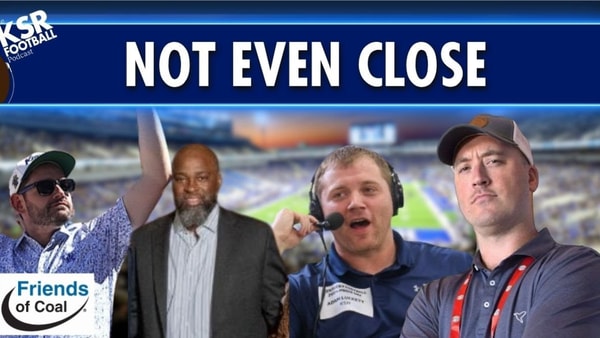
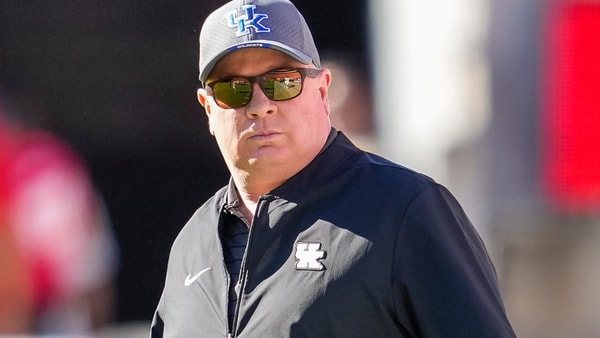
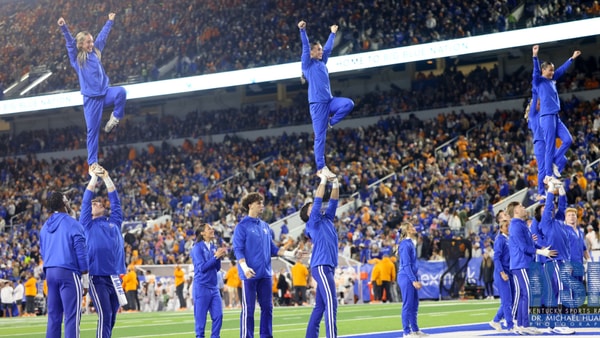
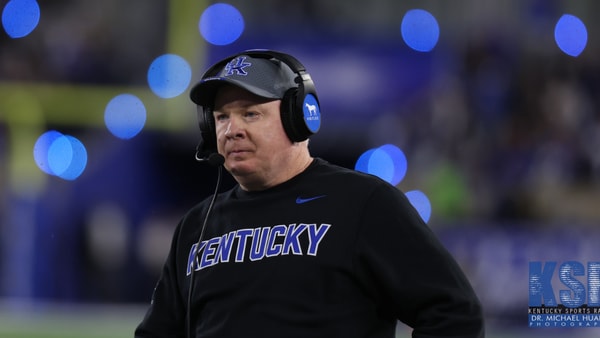
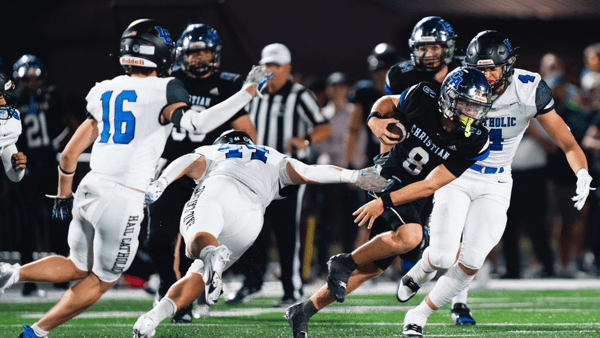

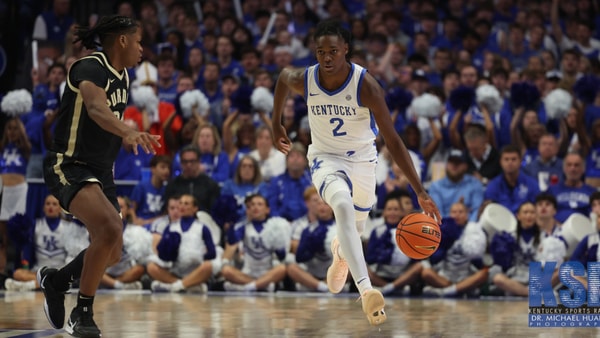
Discuss This Article
Comments have moved.
Join the conversation and talk about this article and all things Kentucky Sports in the new KSR Message Board.
KSBoard